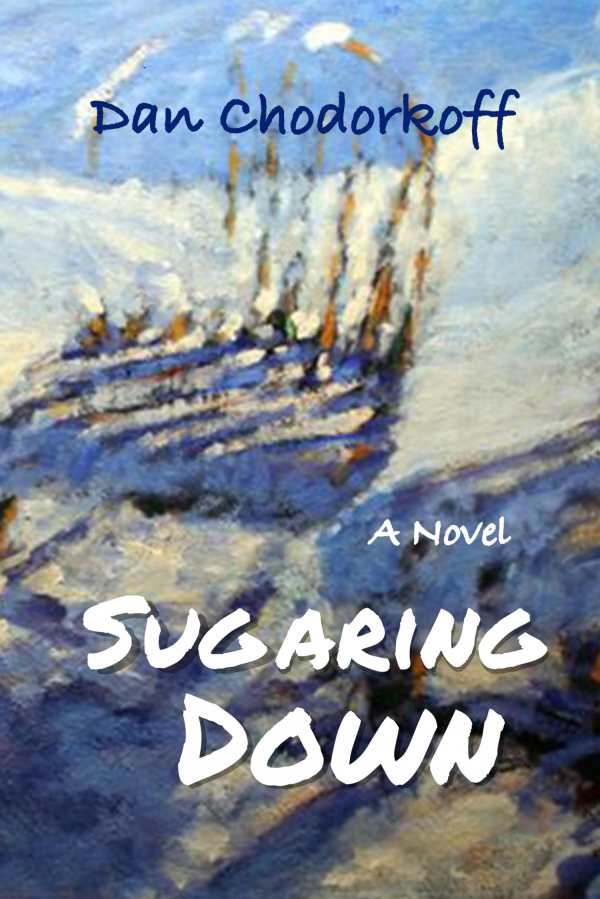Sugaring Down
a Novel
The historical novel Sugaring Down shows that it’s all too easy to go too far when you’re trying to change the world.
Young activists are determined to transform society in Dan Chodorkoff’s historical novel Sugaring Down, which is set in the tumultuous 1960s.
David and his girlfriend, Jill, with their politically active friends from school, move to a farm in Vermont with grandiose dreams of building a brand new world. There, David finds fulfillment in the hard work required to run a successful farm, while Jill presses the group to transcend the back-to-the-landers and make a wider impact. The group contributes food to the Black Panthers’ free-lunch program, joins protests, and helps draft-dodgers escape to Canada.
But when the group’s youthful enthusiasm fails to translate into substantive change, friction brews. Those who live in the town feel as if they have been invaded; David and Jill take to bickering over social norms, as of whether monogamy is bourgeois, or of whether violence is acceptable in protesting the Vietnam War. When a radical outsider shows up on the farm, he spreads his frenetic energy among the increasingly less-satisfied group.
David is centered in this story. He’s the best developed character—and the one who is most determined to succeed in the harsh environment of northern Vermont. At his direction, the group plants seedlings, chops wood, and helps to make maple syrup for their supportive neighbors, Leland and Mary. Though the characters are exhilarated by the newness of their social experiment and experiences, the early novel assumes a peaceful, slow pace, mimicking the style of David’s favorite wellness book and organized around the coming and going of seasons across two years.
While Sugaring Down is a novel, it reads much like a memoir. It takes care to describe the political movements and thinking of the late 1960s, and its dialogue is peppered with expressions of the times (people are “lit up”; situations are “out of sight” and “far out”). Local history is covered by Leland and Mary, who are veteran farmers and Vermont natives. Their clear love of their home leads to sensuous descriptions of sparkling snow, bursting flower buds, and green hills.
Despite all of this beauty, the characters’ disputes become insurmountable, leading to a split in the group. There are detrimental results—both for those who turn to a more radical path, and for society at large. David’s measured reasoning comes to seem necessary to the success of his group’s revolutionary ideas.
Marked by tragedy and regret, Sugaring Down is an engaging historical novel set among well-intentioned activists during the 1960s.
Reviewed by
Brandee Gruener
Disclosure: This article is not an endorsement, but a review. The publisher of this book provided free copies of the book and paid a small fee to have their book reviewed by a professional reviewer. Foreword Reviews and Clarion Reviews make no guarantee that the publisher will receive a positive review. Foreword Magazine, Inc. is disclosing this in accordance with the Federal Trade Commission’s 16 CFR, Part 255.

